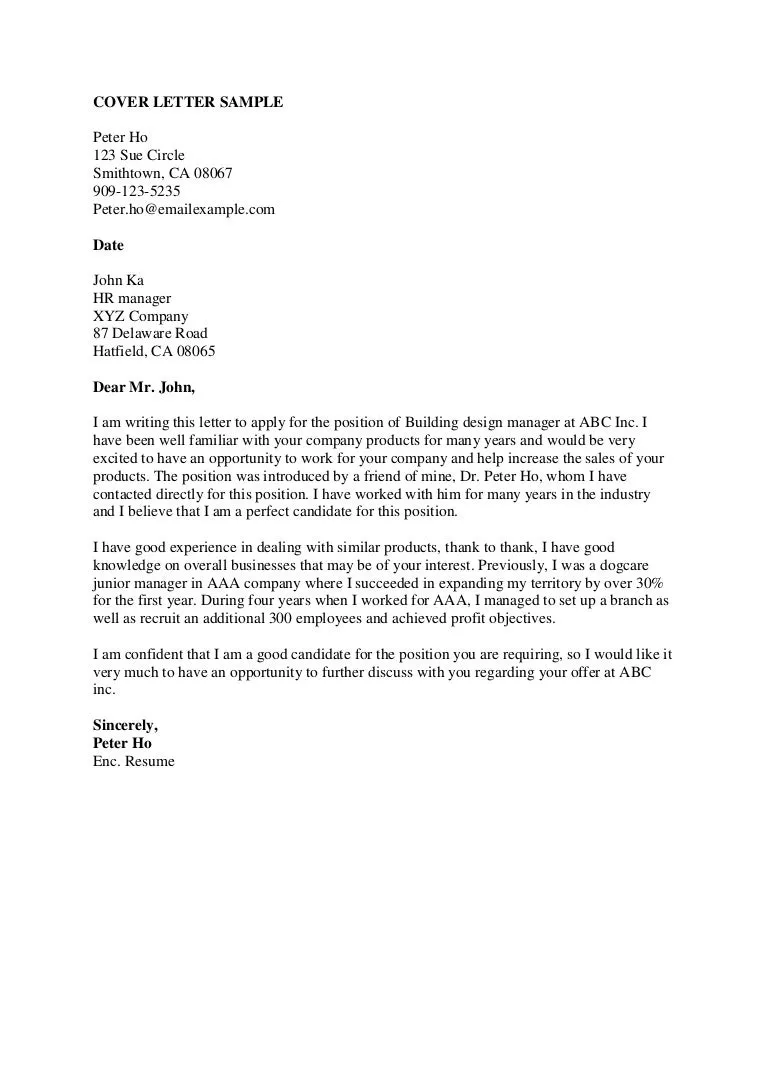Understanding the Security Job Market
The security job market is dynamic and competitive. Before you begin writing your cover letter, it’s crucial to understand the current landscape. This involves knowing the types of roles available, the industries that employ security personnel, and the specific requirements of each position. Researching the market allows you to tailor your cover letter to the needs of potential employers, increasing your chances of landing an interview. Different sectors, such as corporate security, event security, and government security, have unique demands. Understanding these nuances is a key first step to creating an effective cover letter that resonates with the hiring manager.
Researching Security Roles and Companies
Thorough research is paramount. Identify specific security roles that align with your skills and career aspirations. Explore job boards, company websites, and professional networking platforms to discover opportunities. Investigate the companies you are interested in working for, learning about their values, mission, and the specific security challenges they face. This information is invaluable as it allows you to customize your cover letter to demonstrate that you understand the company’s needs and how your skills can contribute to their success. Highlighting this alignment will make your application stand out.
Essential Skills to Highlight
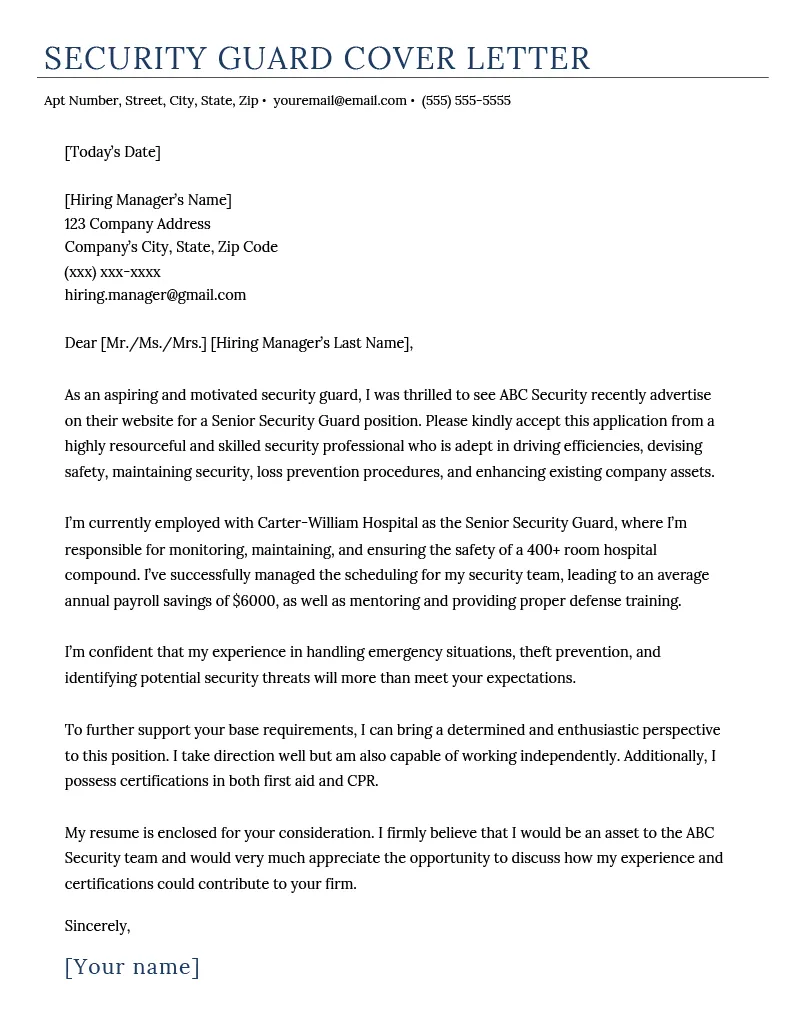
A strong security cover letter showcases your ability to meet the core requirements of the job. Employers look for a variety of skills, both hard and soft, that demonstrate your suitability for the role. These include technical proficiencies, such as knowledge of security systems, surveillance equipment, and access control, along with soft skills like communication, problem-solving, and conflict resolution. Identifying and emphasizing these relevant skills in your cover letter is crucial to making a positive first impression. The more relevant your skills, the better your chance.
Core Security Competencies
Security jobs demand a specific set of hard skills. These include proficiency in surveillance techniques, understanding of security protocols, and the ability to operate security equipment. Mention any certifications you have, such as those related to security systems, emergency response, or first aid. Detail any experience you have with access control systems, alarm monitoring, or patrol procedures. Demonstrating competence in these areas will highlight your practical understanding of the job and will give the employer a clear picture of your potential to meet the requirements of the specific role.
Communication and Interpersonal Skills
Security roles often involve interaction with the public and colleagues, requiring excellent communication and interpersonal skills. Your cover letter should demonstrate your ability to communicate clearly, de-escalate tense situations, and work effectively in a team. Provide examples of situations where you have successfully handled difficult individuals, resolved conflicts, or communicated critical information clearly and concisely. Showcasing these soft skills, alongside your technical skills, paints a complete picture of your suitability and ability to thrive in a security position.
Writing a Compelling Cover Letter
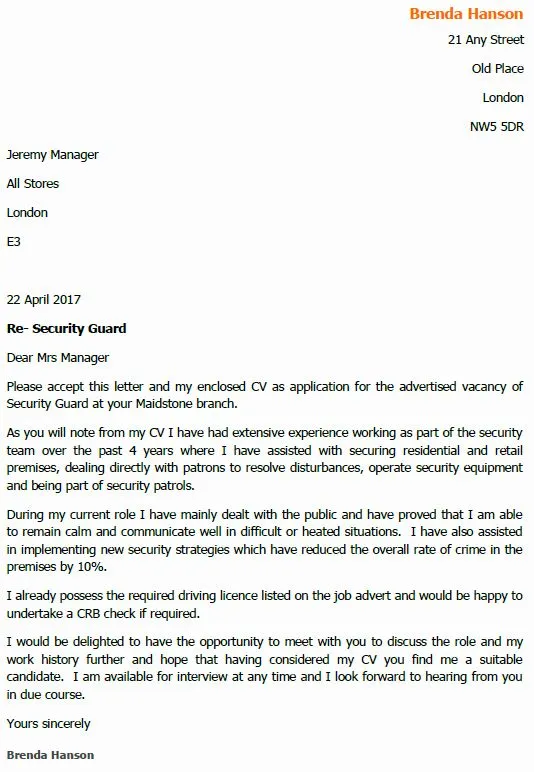
Crafting a compelling cover letter is an art. It should be concise, engaging, and tailored to the specific job you are applying for. Your cover letter is an opportunity to make a strong first impression and showcase your unique qualifications. Avoid generic templates; instead, personalize your letter to demonstrate your understanding of the role and the company. Make sure your cover letter complements your resume by highlighting your most relevant skills, experiences, and achievements. A well-written cover letter will set you apart from other applicants.
Formatting Your Cover Letter
The format of your cover letter is important; it needs to be easy to read and professional in appearance. The layout should include a clear header with your contact information, a professional salutation, a concise introduction, body paragraphs that highlight your skills and experience, a strong closing, and your signature. Use a standard font, such as Arial or Times New Roman, with a font size between 10 and 12 points. Keep the letter to one page to maintain focus and readability. Ensure the formatting is consistent throughout to give your cover letter a polished look.
Header and Contact Information
At the top of your cover letter, include your name, address, phone number, and email address. Ensure this information is accurate and up to date. Directly below your contact details, you should add the date, and then the hiring manager’s name, title, and the company’s address (if known). Always use a professional email address. Double-check all details to avoid errors that could prevent the hiring manager from contacting you.
Professional Salutation
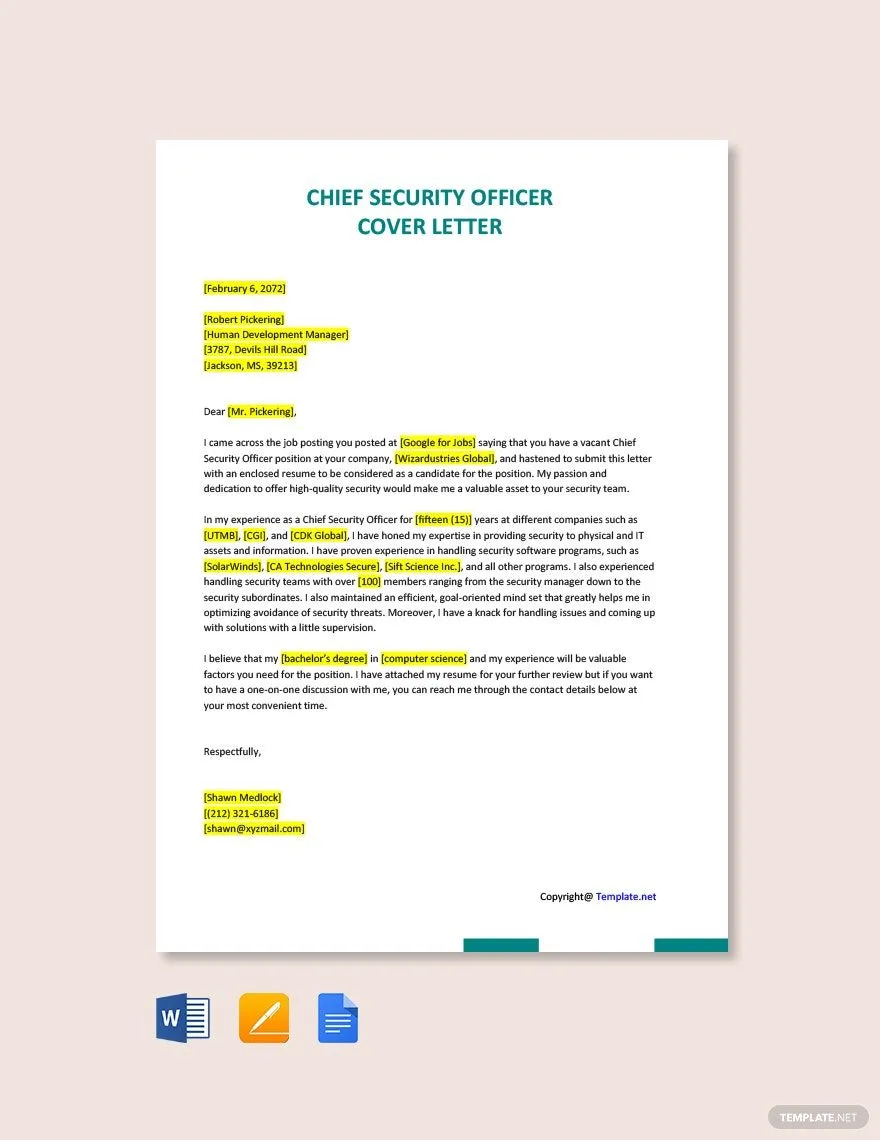
Begin your cover letter with a professional salutation. If you know the hiring manager’s name, use it: ‘Dear Mr./Ms. [Last Name]’. If the name is not available, use a general greeting such as ‘Dear Hiring Manager’ or ‘Dear [Company Name] Hiring Team.’ Avoid generic salutations like ‘To Whom It May Concern’. This is a simple way to show that you’ve done your research and are personalizing your letter, making a good first impression.
Crafting the Opening Paragraph
The opening paragraph is your first chance to grab the reader’s attention. State the position you are applying for and how you learned about it. Briefly mention what makes you a good fit for the job. Focus on expressing your enthusiasm for the role and company. This initial paragraph should be concise and engaging, setting the tone for the rest of your letter. This is a chance to hook the reader and make them want to read further.
Highlighting Relevant Experience
The body of your cover letter is where you showcase your skills and experience. Focus on the experiences and qualifications that directly align with the job requirements. Use specific examples to illustrate your achievements, avoiding generic statements. Quantify your accomplishments whenever possible to demonstrate your impact. For instance, mention how you improved security protocols, reduced incidents, or trained other employees. Support your claims with evidence that backs up your statements.
Quantifying Achievements
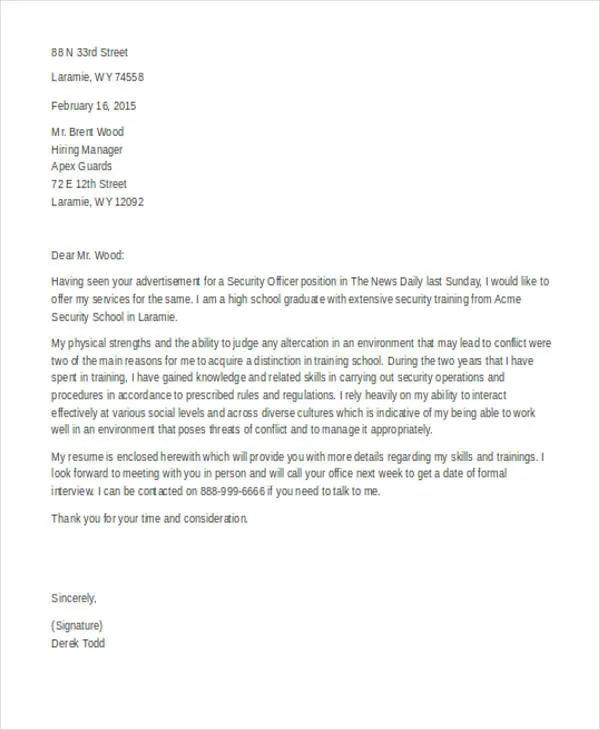
To make your cover letter more persuasive, quantify your achievements. Instead of saying ‘Improved security,’ say ‘Reduced theft by 15% through implementation of new surveillance protocols.’ Providing specific numbers demonstrates the tangible results of your work and provides a clear measure of your value to potential employers. Use data to illustrate your impact and show that you are results-oriented.
Showcasing Your Skills and Qualifications
In addition to highlighting your experience, showcase your skills. Mention specific skills that are required for the role, such as surveillance techniques, access control, or emergency response procedures. Describe how you’ve utilized these skills in previous positions. Align your qualifications with the job description, making it evident that you possess the necessary skills. Use examples from previous employment or training to illustrate your skill set, providing practical evidence.
Tailoring Your Cover Letter
Avoid sending a generic cover letter to multiple jobs. Instead, tailor each letter to the specific job and company. Research the company and understand their needs. Adjust the letter to highlight the skills and experiences most relevant to that specific role. This personalization demonstrates your genuine interest and commitment to the position, making it much more likely that your application will stand out. Take the time to customize each application.
Expressing Your Enthusiasm and Interest
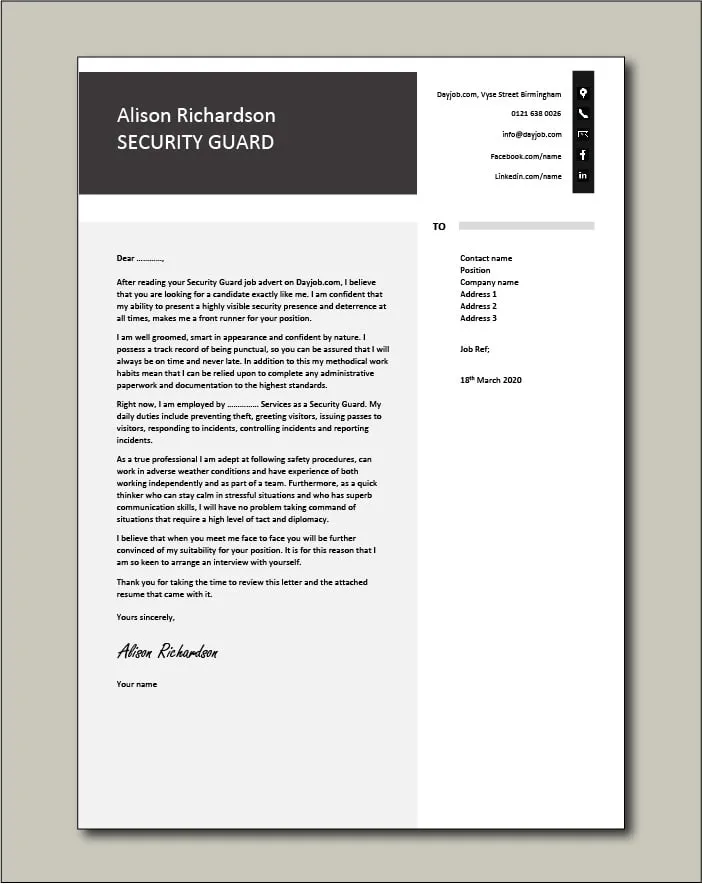
Show genuine enthusiasm for the role and the company. Express your excitement about the opportunity and explain why you are interested in working there. Research the company’s mission, values, and any recent achievements. Mention something specific that resonates with you. Enthusiasm can make your cover letter more engaging and demonstrates your proactive approach to the job application. This helps differentiate you from other candidates.
Writing a Strong Closing
Your closing paragraph should summarize your interest and reiterate your qualifications. Express your gratitude for the reader’s time and consideration. Include a call to action, such as inviting the reader to contact you for an interview. End with a professional closing, such as ‘Sincerely’ or ‘Best regards’, followed by your typed name. Ensuring a professional and polished conclusion is just as vital as the rest of the cover letter.
Proofreading and Editing
Proofreading and editing are critical steps. Ensure your cover letter is free from any errors in grammar, spelling, and punctuation. Errors can undermine your credibility and give the impression that you are not detail-oriented. Before submitting, meticulously review your cover letter and consider having a friend or colleague review it. A polished and error-free cover letter increases your chances of making a good first impression and getting an interview.
Checking for Grammar and Spelling Errors
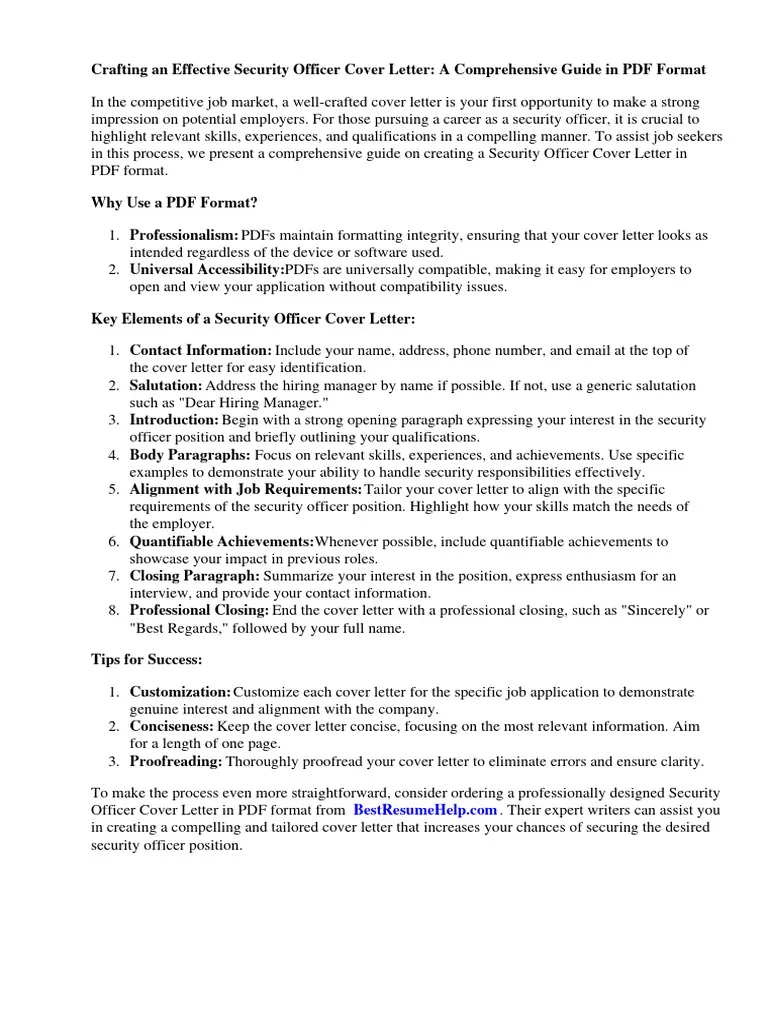
Grammatical and spelling errors can damage your credibility. Proofread your cover letter thoroughly and use a spell-checker to catch any mistakes. Pay close attention to common errors, such as incorrect verb tenses, subject-verb agreement, and punctuation. Read the letter aloud to catch any awkward phrasing or sentences that don’t flow well. A well-written and error-free cover letter demonstrates your attention to detail.
Ensuring Clarity and Conciseness
Keep your cover letter clear, concise, and easy to read. Avoid using jargon or overly complex sentences. Make your points directly and use active voice. The goal is to communicate your skills and experience effectively within a short space. Ensure your letter is well-organized, with each paragraph focusing on a specific point. A well-written, concise cover letter will make it easier for the hiring manager to quickly grasp your qualifications.
Reviewing the Overall Tone
Review the overall tone of your cover letter to ensure it is professional, confident, and enthusiastic. The tone should match the company culture and the specific job requirements. Avoid being overly casual or informal. Project confidence in your abilities and express your eagerness to contribute to the company. The overall tone will make an impression on the hiring manager and set the right expectations for your application.
